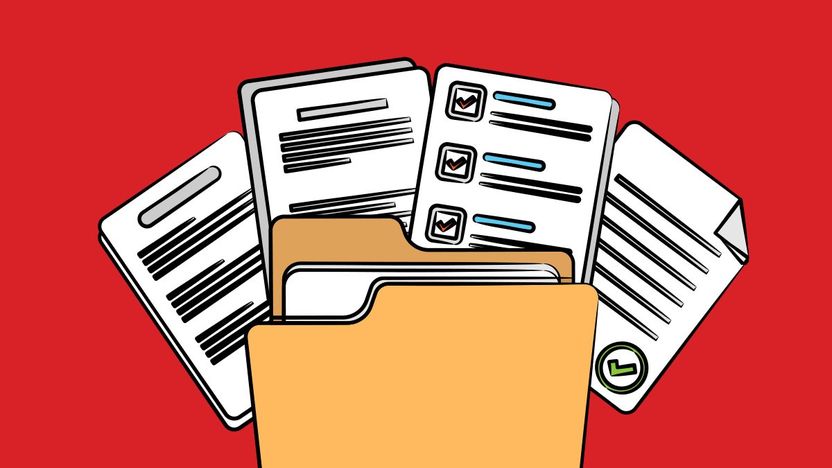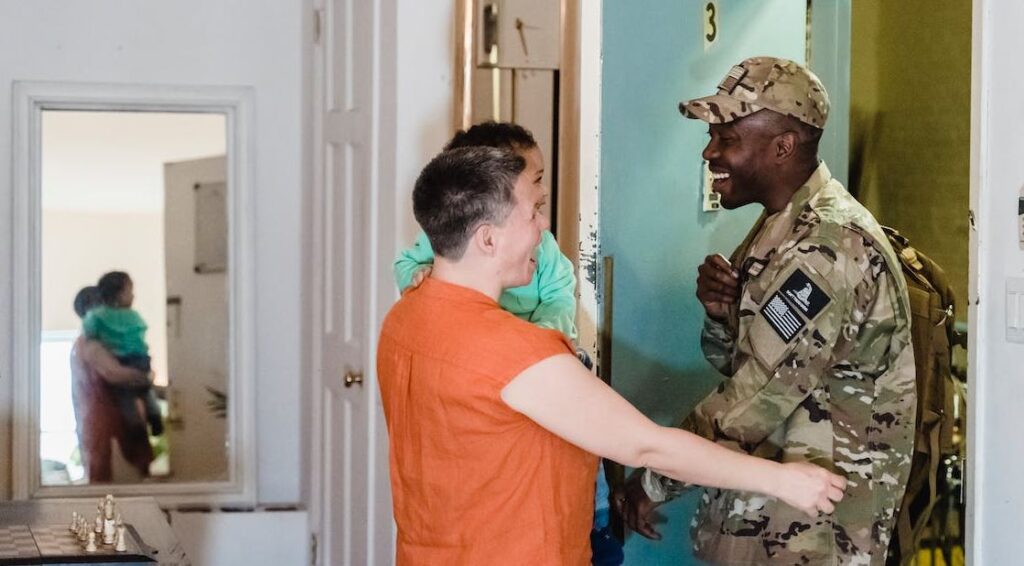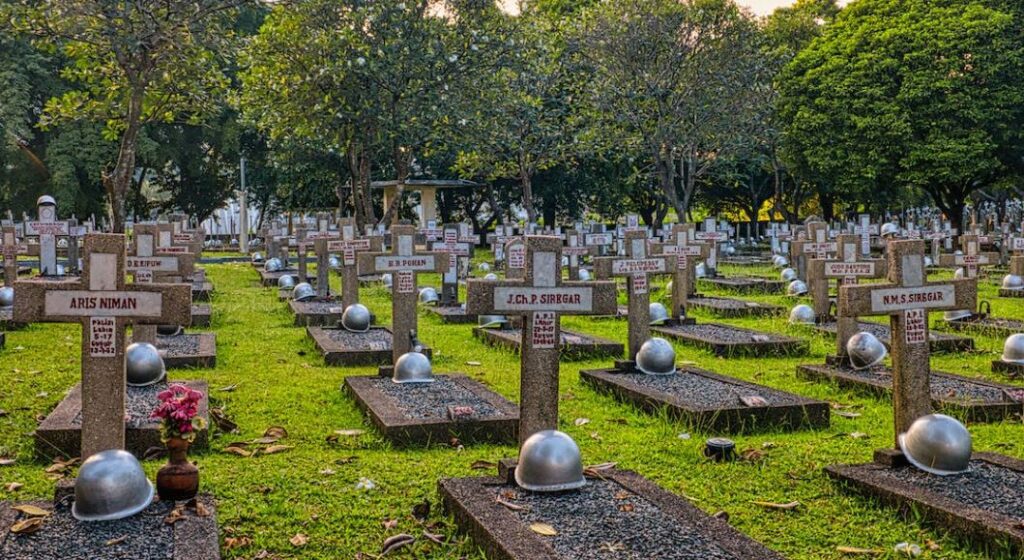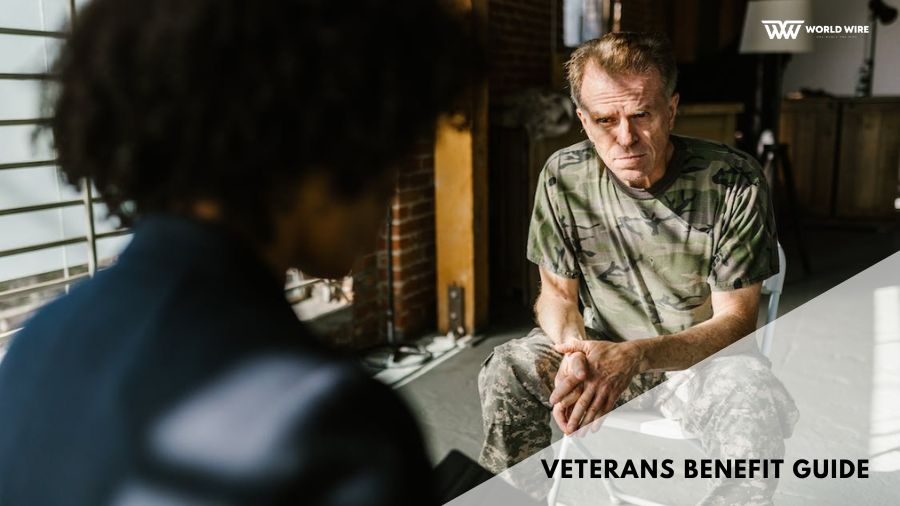This veteran benefits guide covers detailed information about the benefits available to veterans, what you need to avail of them, and more.
Veterans hold a special place in the heart of our society, and thus, the United States Department of Veterans Affairs, in order to show the country’s appreciation and thankfulness toward the selfless sacrifices and services of the veterans, makes several benefits available to them with ease.
However, it could take ample effort to keep track of what document is needed for claiming any benefit and to figure out if you are eligible or not. And so, we have a one-stop solution for all your needs. We have also covered several articles related to discounts available for military members and veterans.
Required Documents Every Veteran Should Have To Receive Veterans Benefits

Starting this Veterans benefits guide with the most important thing that you should consider, which is the required documents. As a veteran, it is essential to have certain documents to ensure you have access to the benefits.
Here is the list of the required documents every veteran should have –
- DD-214 – The DD-214 is the most critical document every veteran should have. It is the official record of your military service and includes information such as your dates of service, awards, and discharge status. You will need this document to apply for VA benefits, education benefits, and other veteran-related services.
- Service Treatment Records – STRs contain information about any medical treatments or surgeries you received while on active duty. These records can be used to support disability claims and access to VA health care benefits.
- VA Disability Award Letter – If you have a disability rating from the VA, you should have a copy of your Disability Award Letter. This document outlines your disability rating, monthly compensation, and eligibility for other benefits.
- Medical Records – Keeping copies of your medical records from the VA and any private medical providers is essential. These records can be used to support disability claims and ensure continuity of care.
- Powers of Attorney and Advance Directives – Powers of Attorney and Advance Directives are legal documents that allow someone else to make decisions on your behalf if you are not in the condition to do so. These documents can be helpful in medical emergencies or other situations where you may not be able to make decisions for yourself.
Health Care Benefits for Transitioning Military Veterans and their Family

Transitioning military veterans and their families may be eligible for VA health care benefits. This segment of this Veterans benefits guide covers the information about the same.
For this, you have to start by applying for VA health care benefits online, by phone, by mail, or in person.
The application process may require you to provide documentation such as your DD-214 form, proof of income, and other personal information.
Once enrolled, veterans can receive primary, specialty, mental health, and other benefits through the VA healthcare system. Family members of veterans may also be eligible for health care benefits through programs such as CHAMPVA.
It is essential to have copies of your medical and service treatment records to support any disability claims and ensure continuity of care. Additionally, veterans should consider powers of attorney and advance directives to fulfill their wishes in medical emergencies or other situations where they cannot decide.
Veteran Medical Benefits Eligibility
Veteran medical benefits eligibility can vary depending on several factors, including a veteran’s service history, discharge status, and current medical needs. Generally speaking, to be eligible for medical benefits through the Department of Veterans Affairs, a veteran must meet the following criteria –
- Service in the US military – To be eligible for VA medical benefits, a veteran must have served in the US military, including the US Army, Navy, Air Force, Marines, or Coast Guard.
- Discharge status – Veterans who received a discharge other than dishonorable may be eligible for VA medical benefits.
- Priority groups – The VA uses priority groups to determine eligibility for medical benefits. Priority is based on factors such as service-connected disabilities, income level, and whether the veteran is a former prisoner of war or received a Purple Heart.
- Medical need – To receive VA medical benefits, a veteran must have a medical condition related to their military service or otherwise determined to result from their service.
The detailed eligibility criteria can vary depending on the benefit sought, so it’s best to contact the VA directly to determine your eligibility.
Veteran Service Connected Disability Compensation

This segment of this Veterans benefits guide covers information about veteran service-connected disability compensation.
Service Connected Disability Compensation is a benefit provided by the Department of Veterans Affairs to veterans who have disabilities that are related to their military service.
To be eligible for this compensation, a veteran must have a service-connected disability, which means a disability that was caused or aggravated during their military service. The disability can be physical, mental, or both.
The compensation a veteran is eligible to receive is based on the severity of their disability, which is rated on a scale of 0 to 100 percent.
It’s important to note that veterans who have a service-connected disability do not need to have been injured in combat to be eligible for this compensation. Any disability related to their military service, including injuries sustained during training or while serving in a non-combat role, may qualify.
The application process for Service Connected Disability Compensation is as follows –
- Veterans should complete and submit VA Form 21-526EZ.
- Any supporting documentation also needs to be submitted along with your application form.
- You can apply for Service Connected Disability Compensation online through the VA’s eBenefits portal or by filling out a paper application (VA Form 21-526EZ) and mailing it to your regional VA office. You can also apply in person at a VA office.
The department will review the application and decide whether you are eligible for the program.
Post-Military Employment
This segment of this Veterans benefit guide covers information about the post-military employment options available for veterans. Many types of post-military employment opportunities are available for veterans, depending on their skills, interests, and education.
Here, we have covered the available options –
- Federal Employment – Many federal agencies, including the Department of Defense, have programs specifically designed to hire veterans.
- Defense contractors – Defense contractors often seek veterans for logistics, security, and other military-related jobs. Companies like Boeing, Lockheed Martin, and Northrop Grumman are just a few examples.
- Law enforcement – Many veterans can easily find work in law enforcement, as their military training and experience can be an asset in this field. This can include jobs with federal, state, and local law enforcement agencies.
- Healthcare – Veterans with medical training or experience may find employment in healthcare fields such as nursing, medical assisting, and medical administration.
- Technology – The technology industry is always looking for skilled workers, and many veterans have the technical skills and experience that are in high demand. This can include jobs in cybersecurity, software development, and network administration.
Education and Training Programs for VA

The Department of Veterans Affairs offers a variety of education and training programs to help veterans achieve their career goals.
Here are some examples –
- GI Bill – The Post-9/11 GI Bill provides funding for tuition, housing, and books for veterans pursuing undergraduate and graduate degrees, as well as vocational and technical training. The VA also offers the Montgomery GI Bill for veterans who served before September 11, 2001.
- Vocational Rehabilitation and Employment (VR&E) – This program provides services and resources to help veterans with service-connected disabilities prepare for, find, and maintain employment. Services may include vocational counseling, job training, and job placement assistance.
- Veterans Retraining Assistance Program (VRAP) – This program provides education and training assistance to unemployed veterans aged 35-60 who are not eligible for other VA education programs.
- Work-Study Program – This program provides opportunities for veterans to work part-time while attending school or training. Work-study positions can be in VA facilities or with approved organizations in the community.
- On-the-Job Training (OJT) and Apprenticeship Programs – These programs provide veterans with opportunities to learn skills and earn a salary while working with employers in various industries.
Veterans Loan Benefits – Apply for a Home Loan
Veterans may be eligible for home loan benefits through the Department of Veterans Affairs.
The following are the steps to apply for a VA home loan –
- Obtain a Certificate of Eligibility (COE) – Veterans must have a COE to apply for a VA home loan. The COE verifies the veteran’s eligibility for the loan program. Veterans can apply for a COE online, through their lender, or by mail.
- Find a VA-approved lender – Veterans can work with any lender to apply for a VA home loan, but choosing a lender with experience with VA loans is recommended. Veterans can search for VA-approved lenders on the VA’s website.
- Complete a loan application – Veterans must complete a loan application with their lender. The application will ask for the veteran’s income, debts, and assets.
- Obtain a home appraisal – The VA requires an estimate to determine the value of the purchased home. A VA-approved appraiser must conduct the assessment.
- Sign the loan documents – Once approved; the veteran must sign the loan documents and pay any closing costs associated with the loan. The lender will provide a closing disclosure outlining the costs and terms of the loan.
VA home loans offer many benefits to veterans, including no down payment requirements, no private mortgage insurance requirements, and competitive interest rates. Veterans should work with their lenders and the VA to ensure they understand the terms and conditions of their loans.
Benefits for Homeless Veterans
The Department of Veterans Affairs provides several benefits and services to support homeless veterans. This segment of the Veterans benefits guide talks about the same –
- Housing Assistance – The VA offers a variety of housing assistance programs for homeless veterans, including transitional housing, permanent supportive housing, and rapid rehousing. These programs provide housing vouchers, case management, and other support services to help veterans secure and maintain stable housing.
- Health Care – Homeless veterans are eligible for comprehensive health care services through the VA. This includes medical, dental, mental health care, and substance abuse treatment.
- Employment and Training – The VA provides job training and assistance to help homeless veterans gain the skills and resources needed to find and maintain employment.
- Education and Training – The VA offers education and training programs to help homeless veterans improve their skills and pursue new career opportunities.
- Legal Assistance – The VA provides legal assistance to homeless veterans, including help with accessing VA benefits, resolving legal issues related to housing, and addressing outstanding fines and fees.
- Outreach and Support – The VA also provides outreach and support services to homeless veterans, including case management, transportation, and assistance accessing community resources.
Veterans Housing Assistance Grants

The Department of Veterans Affairs offers several housing assistance grants to help veterans purchase, build, or modify homes. This segment of the Veterans benefits guide discusses the same.
- Specially Adapted Housing (SAH) Grant – This grant funds veterans with service-connected disabilities to help them purchase, build, or modify a home to accommodate their disability. The grant can cover the costs of home modifications, such as wheelchair ramps, widened doorways, and accessible bathrooms.
- Special Housing Adaptation (SHA) Grant – This grant funds veterans with service-connected disabilities to help them purchase, build, or modify a home to accommodate their disability. The grant can cover the costs of home modifications, such as grab bars, handrails, and other adaptive features.
- Home Improvement and Structural Alterations Grant – This grant funds veterans with service-connected disabilities to help them make necessary home modifications and improvements. The grant can cover the costs of items such as wheelchair ramps, stair lifts, and bathroom renovations.
- VA Home Loan – The VA also offers home loans to eligible veterans to help them purchase or refinance a home. The VA home loan program provides several benefits, including no down payment requirements, no private mortgage insurance (PMI) requirements, and competitive interest rates.
Veterans Aid and Pension Benefits
The Department of Veterans Affairs offers an Aid and Attendance pension benefit for eligible veterans and their spouses who require assistance with daily living activities. This benefit can help cover the cost of at-home care, assisted living, or nursing home care.
To be eligible for the Aid and Attendance benefit, the veteran should have served at least 90 days of active duty, with a minimum of one day during wartime, and must have a non-service-connected disability.
The veteran must also meet certain income and asset limitations. In addition to these pension benefits, the VA also offers a range of other benefits and services for veterans, including health care, education and training programs, disability compensation, home loan programs, and more.
To apply for VA pension benefits, veterans and their families can contact their local VA Regional Office or visit the VA’s website for more information and assistance.
Life Insurance for Veterans
The Department of Veterans Affairs offers several life insurance options for eligible veterans, service members, and their families. This segment of the Veterans benefits guide covers information about the same –
- Servicemembers’ Group Life Insurance (SGLI) – This is a group term life insurance policy available to all active duty service members, National Guard members, and reservists. SGLI coverage is automatic, and premiums are deducted from the service member’s pay. Coverage amounts range from $50,000 to $400,000.
- Veterans’ Group Life Insurance (VGLI) – This group-term life insurance policy is available to veterans with SGLI coverage while on active duty. VGLI allows veterans to convert their SGLI coverage to a renewable term policy. Coverage amounts range from $10,000 to the maximum SGLI coverage the veteran had while on active duty.
- Family Servicemembers’ Group Life Insurance (FSGLI) – This is a group term life insurance policy available to the spouse/partner and dependent children of service members covered by SGLI. Coverage amounts range from $10,000 to $100,000 for spouses and $5,000 to $10,000 for dependent children.
- Service-Disabled Veterans’ Insurance (S-DVI) – This life insurance program is available to veterans with a service-related disability. S-DVI provides up to $10,000 in life insurance coverage.
- Veterans’ Mortgage Life Insurance (VMLI) – This life insurance program is available to veterans who have received a uniquely adapted housing grant from the VA VMLI provides up to $200,000 in mortgage protection insurance coverage.
State and Local Military Benefits
Along with the federal benefits available to veterans and military personnel, many state and local benefits may be available depending on where the veteran or military member resides. This section of the Veterans benefits guide covers information about the same.
- Education Benefits – Many states offer education benefits for veterans and military personnel, including tuition waivers, scholarships, and grants. Some states also offer in-state tuition rates for out-of-state veterans and military members.
- Employment Benefits – Some states provide benefits for veterans and military members, such as preference in hiring, job training programs, and unemployment compensation.
- Tax Exemptions – Many states offer property tax exemptions, income tax exemptions, or other tax breaks for veterans and military personnel.
- Vehicle and Driver’s License Benefits – Some states offer reduced fees or exemptions for vehicle registrations and driver’s licenses for veterans and military members.
- Hunting and Fishing Licenses – Many states offer free or reduced-cost hunting and fishing licenses for veterans and military members.
- Housing Benefits – Some states provide veterans and military members housing benefits, such as low-interest home loans and property tax exemptions.
Where to Get Assistance with VA Claim
If you need assistance with a VA claim, several resources are available to help you. This segment of the Veterans benefits guide covers detailed information about the same.
- Veterans Service Organizations (VSOs) – VSOs, such as the Disabled American Veterans (DAV) or the American Legion, have trained service officers to assist veterans with filing claims and appeals. These organizations can provide free assistance and representation to veterans.
- State and County Veterans Service Offices – Many states and counties have Veterans Service Offices that can assist with filing VA claims and appeals. These offices are staffed by trained professionals who can help veterans navigate the VA system.
- VA Regional Offices – The VA has Regional Offices throughout the country that can assist with VA claims and appeals. You can find your local VA Regional Office on the VA’s website.
- VA Benefits Advisors – The VA has Benefits Advisors who can assist with VA claims and appeals. You can find a Benefits Advisor near you on the VA’s website.
- Private Attorneys and Accredited Agents – They can assist with VA claims and appeals but may charge a fee for their services.
No matter which resource you choose, having all relevant documents and information ready when seeking assistance with a VA claim is crucial. This can include service records, medical records, and all pertinent correspondence from the VA.
Military Burial and Funeral Honors

The Department of Veterans Affairs provides burial and memorial benefits to eligible veterans, service members, and their families.
Here are some examples of the benefits available –
- Burial in a VA National Cemetery – Eligible veterans and service members can be buried in a VA national cemetery at no cost to the family. This includes a gravesite, opening and closing of the grave, a grave liner, and a government headstone or marker.
- Headstones and Markers – The VA provides headstones and markers for eligible veterans and service members buried in any cemetery, not just a VA national cemetery. The monuments and markers are inscribed with the veteran’s name, a branch of service, and other information.
- Presidential Memorial Certificates – The VA provides Presidential Memorial Certificates to the family of eligible veterans and service members as a tribute to their loved one’s service.
- Burial Allowances – The VA provides burial allowances to help cover funeral and burial expenses for eligible veterans and service members. The amount of the funding depends on whether the death was related to military service.
- Military Funeral Honors – The VA provides military funeral honors, including folding and presenting the US flag and playing Taps, to eligible veterans and service members at no cost to the family.
There you have it – a detailed guide covering information related to Veterans benefits. Below, we have covered some FAQs to help you with the most common queries.
FAQs
How long does it take to receive veterans’ benefits?
The length of time it takes to receive veterans’ benefits varies depending on the program or service. Some benefits, such as healthcare and education, may be available immediately, while others, such as disability compensation, may take several months to process.
Who is eligible for veterans’ benefits?
Eligibility for veterans’ benefits varies depending on the program or service. Generally, individuals who have served on active duty in the US military and were discharged under conditions other than dishonorable may be eligible for benefits.







Add Comment